Choosing the Right  Laptop
Laptop for Computer Students: Gaming Laptops vs. Thin and Light Laptops
for Computer Students: Gaming Laptops vs. Thin and Light Laptops
In today's digital age, having a reliable and efficient laptop is essential for computer students. With a plethora of options available in the market, it can be challenging to decide between gaming laptops and thin and light laptops
With a plethora of options available in the market, it can be challenging to decide between gaming laptops and thin and light laptops . Each type offers unique features and benefits that cater to different needs and preferences. In this article, we will explore the factors to consider when choosing a laptop for course study and help computer students make an informed decision.
. Each type offers unique features and benefits that cater to different needs and preferences. In this article, we will explore the factors to consider when choosing a laptop for course study and help computer students make an informed decision.
Image Source: ROG - Republic of Gamers
 Processing Power and Performance
Processing Power and Performance :
:
One of the primary considerations for computer students is the processing power and performance of the laptop.  Gaming laptops are specifically designed to handle demanding tasks and resource-intensive applications
Gaming laptops are specifically designed to handle demanding tasks and resource-intensive applications . They usually come equipped with
. They usually come equipped with  powerful processors, ample RAM, and dedicated graphics cards
powerful processors, ample RAM, and dedicated graphics cards , making them ideal for running complex simulations, coding, and graphic design work. On the other hand, thin and light laptops prioritize portability and energy efficiency, which may result in slightly lower processing power. However, they still offer sufficient performance for everyday tasks such as web browsing, document editing, and programming.
, making them ideal for running complex simulations, coding, and graphic design work. On the other hand, thin and light laptops prioritize portability and energy efficiency, which may result in slightly lower processing power. However, they still offer sufficient performance for everyday tasks such as web browsing, document editing, and programming.
Image Source: ROG - Republic of Gamers
 Portability and Mobility
Portability and Mobility :
:
Another crucial factor to consider is the portability and mobility of the laptop. Thin and light laptops are designed to be lightweight and compact, making them highly portable
Thin and light laptops are designed to be lightweight and compact, making them highly portable . They are ideal for students who need to carry their laptops to classes, libraries, or study groups. Gaming laptops, on the other hand,
. They are ideal for students who need to carry their laptops to classes, libraries, or study groups. Gaming laptops, on the other hand,  tend to be bulkier and heavier due to their robust hardware components and cooling systems
tend to be bulkier and heavier due to their robust hardware components and cooling systems . While they may not be as portable as thin and light laptops, they offer a more immersive gaming experience and can handle demanding software requirements.
. While they may not be as portable as thin and light laptops, they offer a more immersive gaming experience and can handle demanding software requirements.
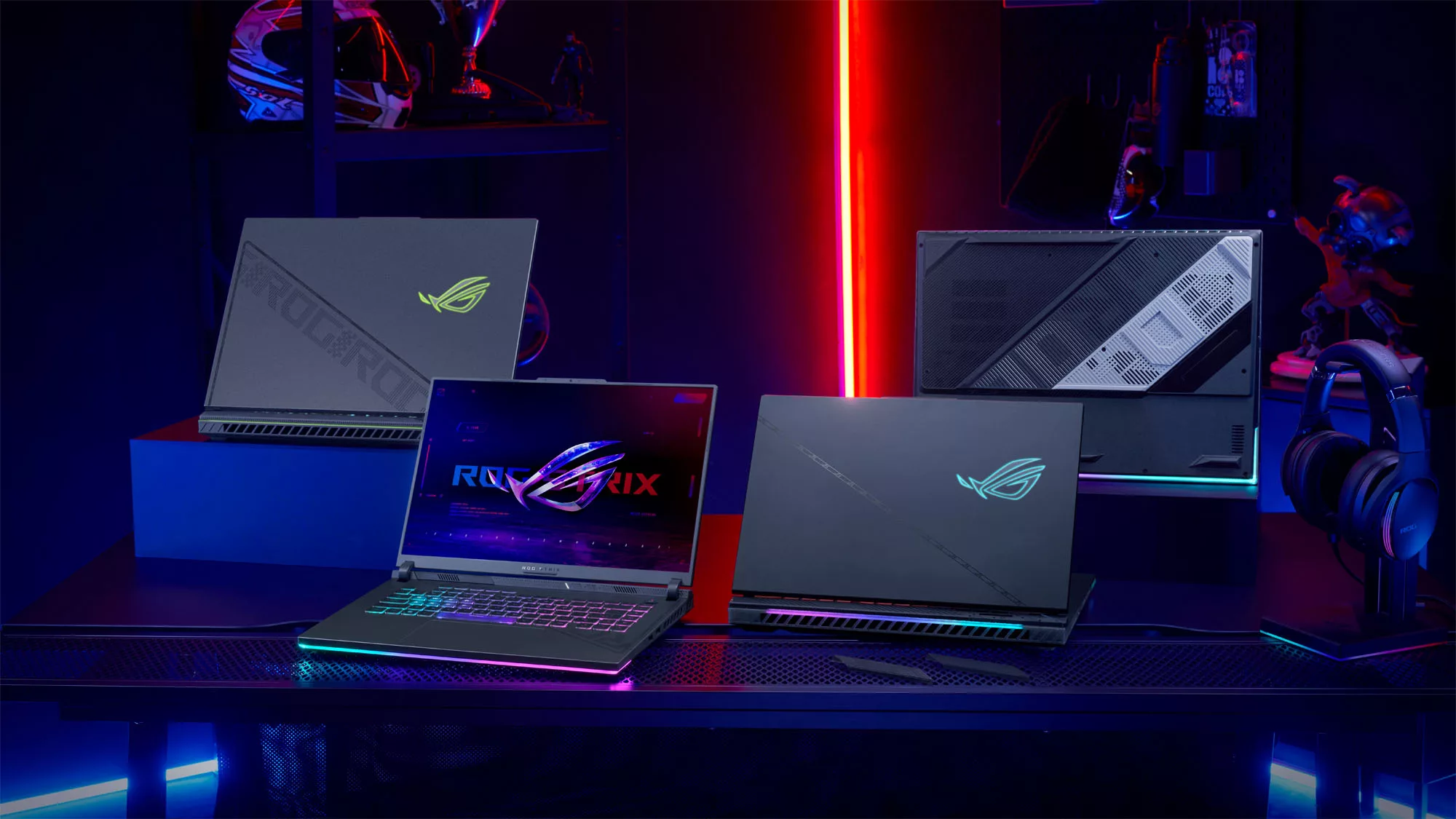
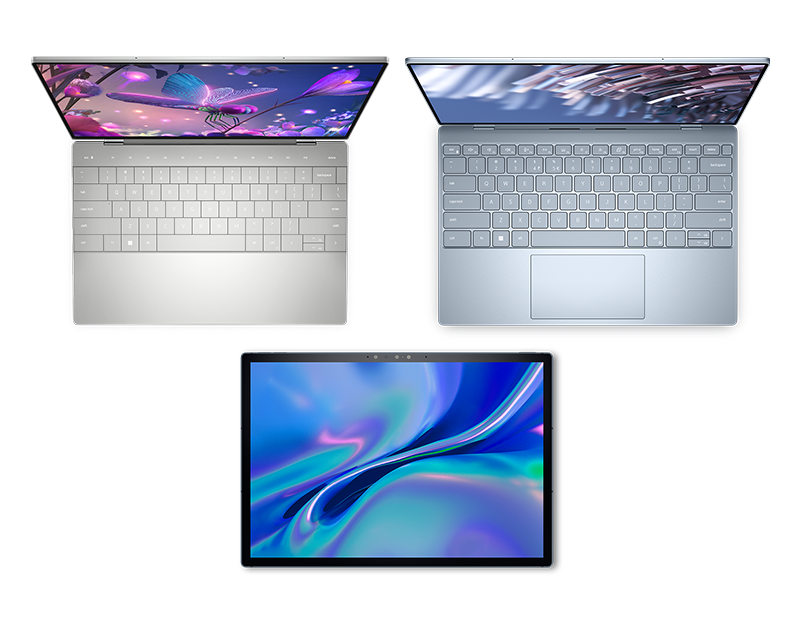
Image Source: ROG - Republic of Gamers & Dell USA
 Battery Life and Energy Efficiency
Battery Life and Energy Efficiency :
:
For computer students who spend long hours on campus or in study sessions, battery life and energy efficiency are important considerations.  Thin and light laptops are engineered to optimize power consumption, allowing for extended battery life
Thin and light laptops are engineered to optimize power consumption, allowing for extended battery life . They are designed to be energy-efficient, ensuring that you can work on assignments or projects without constantly searching for a power outlet. Gaming laptops, on the other hand,
. They are designed to be energy-efficient, ensuring that you can work on assignments or projects without constantly searching for a power outlet. Gaming laptops, on the other hand,  typically consume more power due to their high-performance components, resulting in shorter battery life
typically consume more power due to their high-performance components, resulting in shorter battery life . They may require frequent charging, especially during resource-intensive tasks or gaming sessions.
. They may require frequent charging, especially during resource-intensive tasks or gaming sessions.
Image Source: Dell USA
 Display and Visual Experience
Display and Visual Experience :
:
The display quality and visual experience are significant factors, particularly for computer students who work extensively with graphics, multimedia, or design-related projects.  Gaming laptops often feature high-resolution displays with fast refresh rates and vibrant colors
Gaming laptops often feature high-resolution displays with fast refresh rates and vibrant colors , providing an immersive visual experience for gaming and multimedia consumption.
, providing an immersive visual experience for gaming and multimedia consumption.  Thin and light laptops, while they may not offer the same level of display capabilities as gaming laptops
Thin and light laptops, while they may not offer the same level of display capabilities as gaming laptops , still provide crisp and clear visuals for everyday tasks and multimedia content.
, still provide crisp and clear visuals for everyday tasks and multimedia content.
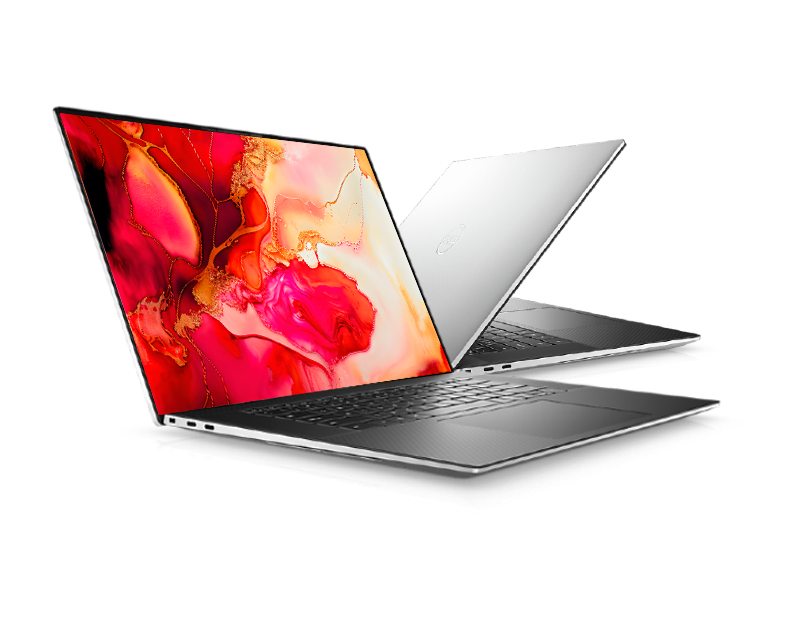
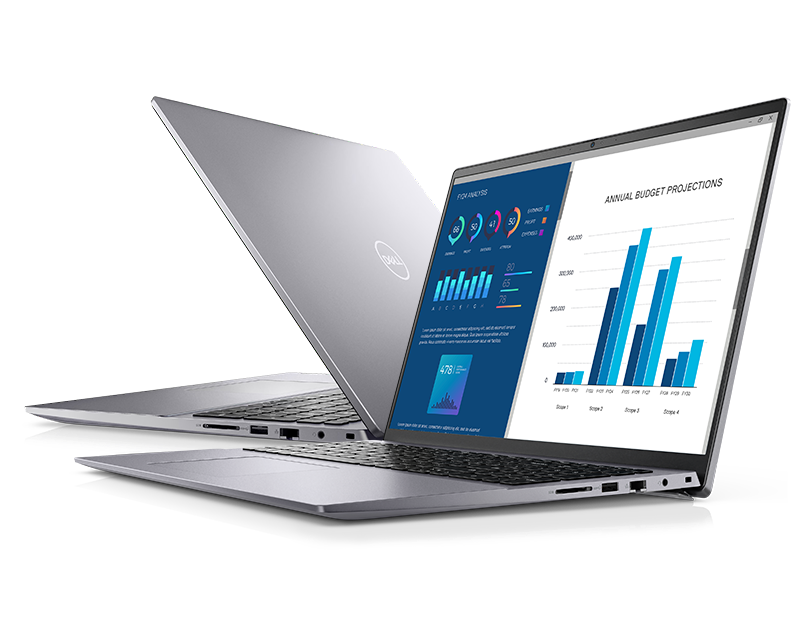
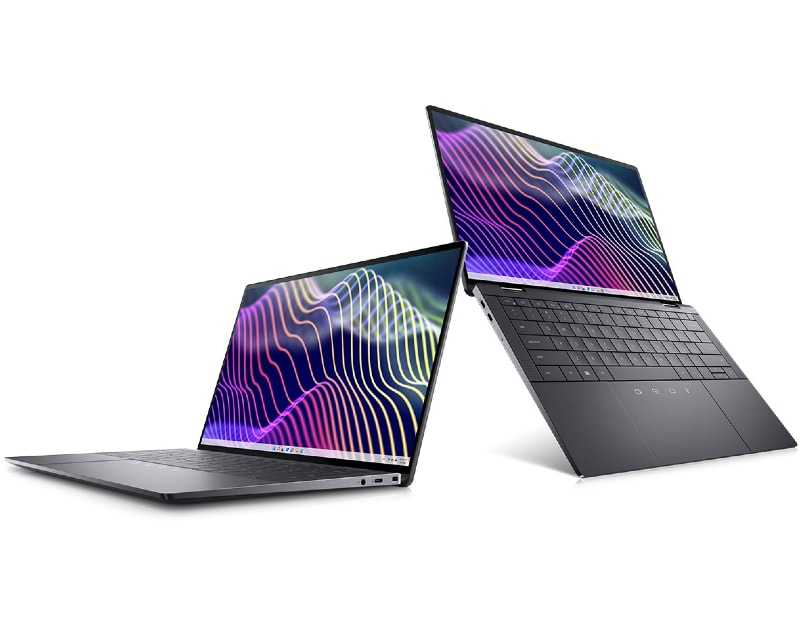
Image Source: Dell USA
 Budget Considerations
Budget Considerations :
:
Budget is an important aspect to consider when making any purchasing decision, including laptops.  Gaming laptops, with their powerful hardware and specialized features, tend to be more expensive compared to thin and light laptops
Gaming laptops, with their powerful hardware and specialized features, tend to be more expensive compared to thin and light laptops . If budget is a constraint, thin and light laptops offer a cost-effective solution without compromising on essential functionality for course study. They provide a balance between performance, portability, and affordability.
. If budget is a constraint, thin and light laptops offer a cost-effective solution without compromising on essential functionality for course study. They provide a balance between performance, portability, and affordability.
Image Source: ROG - Republic of Gamers
Choosing the right laptop for computer students requires careful consideration of various factors such as processing power, portability, battery life, display quality, and budget.  Gaming laptops offer high-performance capabilities and immersive gaming experiences, while thin and light laptops prioritize portability, energy efficiency, and affordability
Gaming laptops offer high-performance capabilities and immersive gaming experiences, while thin and light laptops prioritize portability, energy efficiency, and affordability . Ultimately, the decision should be based on individual needs, preferences, and the specific requirements of the computer course. By carefully evaluating these factors, computer students can select a laptop that best suits their academic pursuits and enhances their learning experience.
. Ultimately, the decision should be based on individual needs, preferences, and the specific requirements of the computer course. By carefully evaluating these factors, computer students can select a laptop that best suits their academic pursuits and enhances their learning experience.
Image Source: Dell USA

